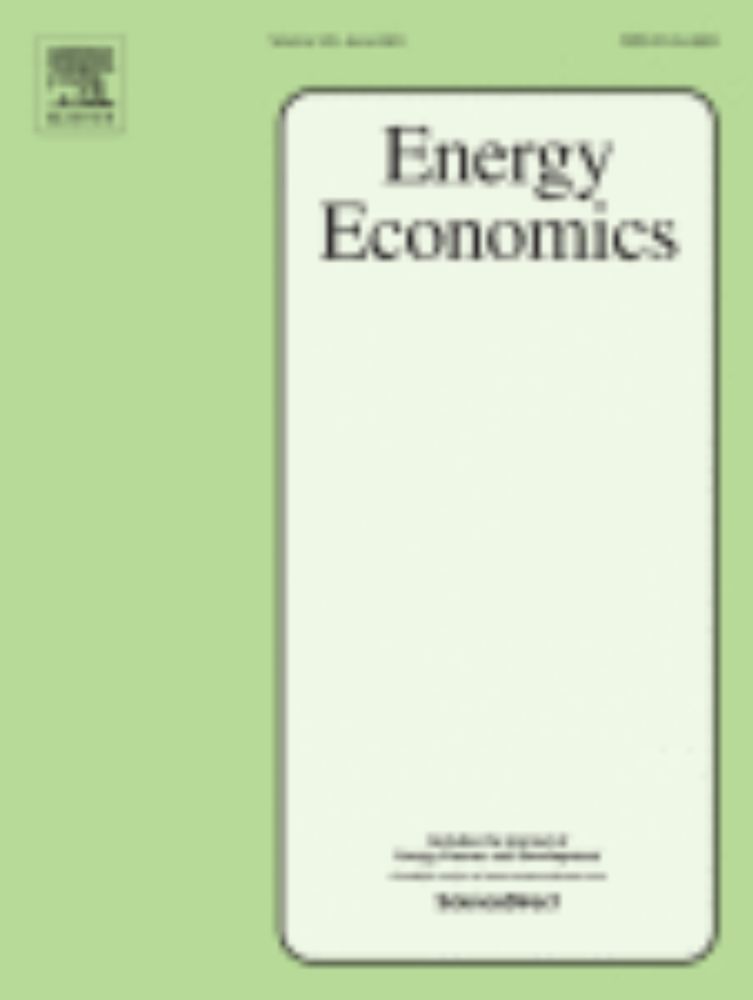
Emil Dimanchev
@emildimanchev.bsky.social
Researching energy systems and climate policy. Postdoc at Princeton ZERO Lab. Research Affiliate at MIT CEEPR. Consulting for Good Judgment. 0th-gen immigrant. Writings: dimanchev.com.
Though cost-effectiveness has been the traditional criteria for policy design, in recent work with @knittelmit.bsky.social we showed there is a near-cost-optimal space of policy mix choices that could satisfy various other criteria. www.sciencedirect.com/science/arti...

Designing climate policy mixes: Analytical and energy system modeling approaches
A matter of debate in climate policy is whether lawmakers should rely on carbon pricing or regulations, such as low-carbon standards, to reach emissio…
www.sciencedirect.com
November 3, 2025 at 3:10 PM
Though cost-effectiveness has been the traditional criteria for policy design, in recent work with @knittelmit.bsky.social we showed there is a near-cost-optimal space of policy mix choices that could satisfy various other criteria. www.sciencedirect.com/science/arti...
To choose the right climate policy mix, we need to grapple with the second-best nature of national economies, and the non-linear trade-offs and synergies between individual policies. Policy analysis has room to improve in that regard.
November 3, 2025 at 3:10 PM
To choose the right climate policy mix, we need to grapple with the second-best nature of national economies, and the non-linear trade-offs and synergies between individual policies. Policy analysis has room to improve in that regard.
You make a good point on excess solar capacity! And I'd say another reason it's good to have around is as an insurance against future demand increases. If demand started growing faster than we'd anticipated, excess capacity is handy.
And thank you very much for the shoutout!
And thank you very much for the shoutout!
October 20, 2025 at 3:10 PM
You make a good point on excess solar capacity! And I'd say another reason it's good to have around is as an insurance against future demand increases. If demand started growing faster than we'd anticipated, excess capacity is handy.
And thank you very much for the shoutout!
And thank you very much for the shoutout!
Plus, if we do want to send individuals signals based on the expected consequences of their actions, shouldn't we incorporate long-run consequences too? So I come back to the idea that for a persistent charging schedule, we'd also want to use LRMER or, more realistically, a good proxy.
October 13, 2025 at 8:11 PM
Plus, if we do want to send individuals signals based on the expected consequences of their actions, shouldn't we incorporate long-run consequences too? So I come back to the idea that for a persistent charging schedule, we'd also want to use LRMER or, more realistically, a good proxy.
So do we have to add another "it depends": whether the change in demand is persistent or not?
October 13, 2025 at 7:42 PM
So do we have to add another "it depends": whether the change in demand is persistent or not?
Perhaps if we are talking about a change in demand that, even if small is predictable (i.e. an EV's charging schedule is changed in a persistent way), then I suppose that would be something system operators will know day-ahead and meet it based on marginal costs.
October 13, 2025 at 7:41 PM
Perhaps if we are talking about a change in demand that, even if small is predictable (i.e. an EV's charging schedule is changed in a persistent way), then I suppose that would be something system operators will know day-ahead and meet it based on marginal costs.
Ok gotcha. To be honest, I am not sure and curious to hear more. A small, unexpected, perturbation in demand will be handled by frequency regulation and one of several operating reserves. Which generator ramps up in response is very unclear.
October 13, 2025 at 7:39 PM
Ok gotcha. To be honest, I am not sure and curious to hear more. A small, unexpected, perturbation in demand will be handled by frequency regulation and one of several operating reserves. Which generator ramps up in response is very unclear.
And yes LRMER for planning is the way!

a man in a helmet with the words this is the way behind him
ALT: a man in a helmet with the words this is the way behind him
media.tenor.com
October 13, 2025 at 6:39 PM
And yes LRMER for planning is the way!
Ultimately, I think we need new metrics to inform dispatch decisions. In the meantime, dispatching toward the periods with large shares of variable renewables in the generation mix seems like a good heuristic to me.
October 13, 2025 at 6:37 PM
Ultimately, I think we need new metrics to inform dispatch decisions. In the meantime, dispatching toward the periods with large shares of variable renewables in the generation mix seems like a good heuristic to me.
Great breakdown, and thanks for sharing our paper! About dashboards, I am wondering what kind of use case setting are we talking about, especially for ops? If it's to inform the dispatch decisions of an aggregator, I am concerned about using SRMER in case it leads to the kinds of outcomes we saw.
October 13, 2025 at 6:36 PM
Great breakdown, and thanks for sharing our paper! About dashboards, I am wondering what kind of use case setting are we talking about, especially for ops? If it's to inform the dispatch decisions of an aggregator, I am concerned about using SRMER in case it leads to the kinds of outcomes we saw.
Does seem like the major AI companies are under-prioritizing safeguards. I am skeptical we can rely on self-regulation when it comes to AI.
October 9, 2025 at 3:51 PM
Does seem like the major AI companies are under-prioritizing safeguards. I am skeptical we can rely on self-regulation when it comes to AI.
Microsoft Office is such a striking example of this. MS is investing heavily in AI but still hasn't figured out how to open files with the same name in different folders.
October 8, 2025 at 10:17 PM
Microsoft Office is such a striking example of this. MS is investing heavily in AI but still hasn't figured out how to open files with the same name in different folders.
To be clear, the term baseload was already outdated - as electricity generation in modern power systems increasingly revolves around renewable resources - but some who still use it can stand to heed this case.
October 7, 2025 at 11:16 PM
To be clear, the term baseload was already outdated - as electricity generation in modern power systems increasingly revolves around renewable resources - but some who still use it can stand to heed this case.

